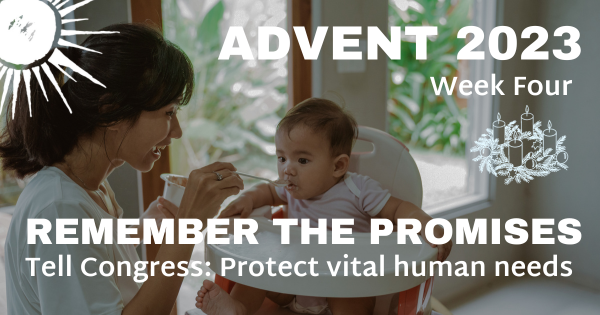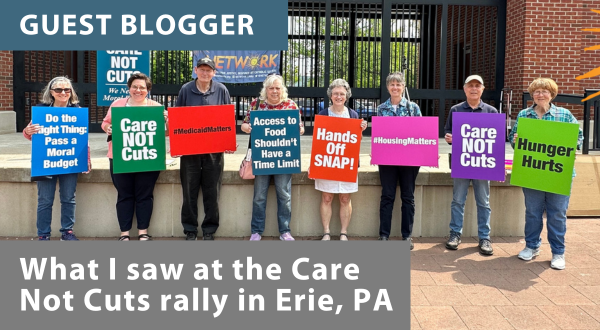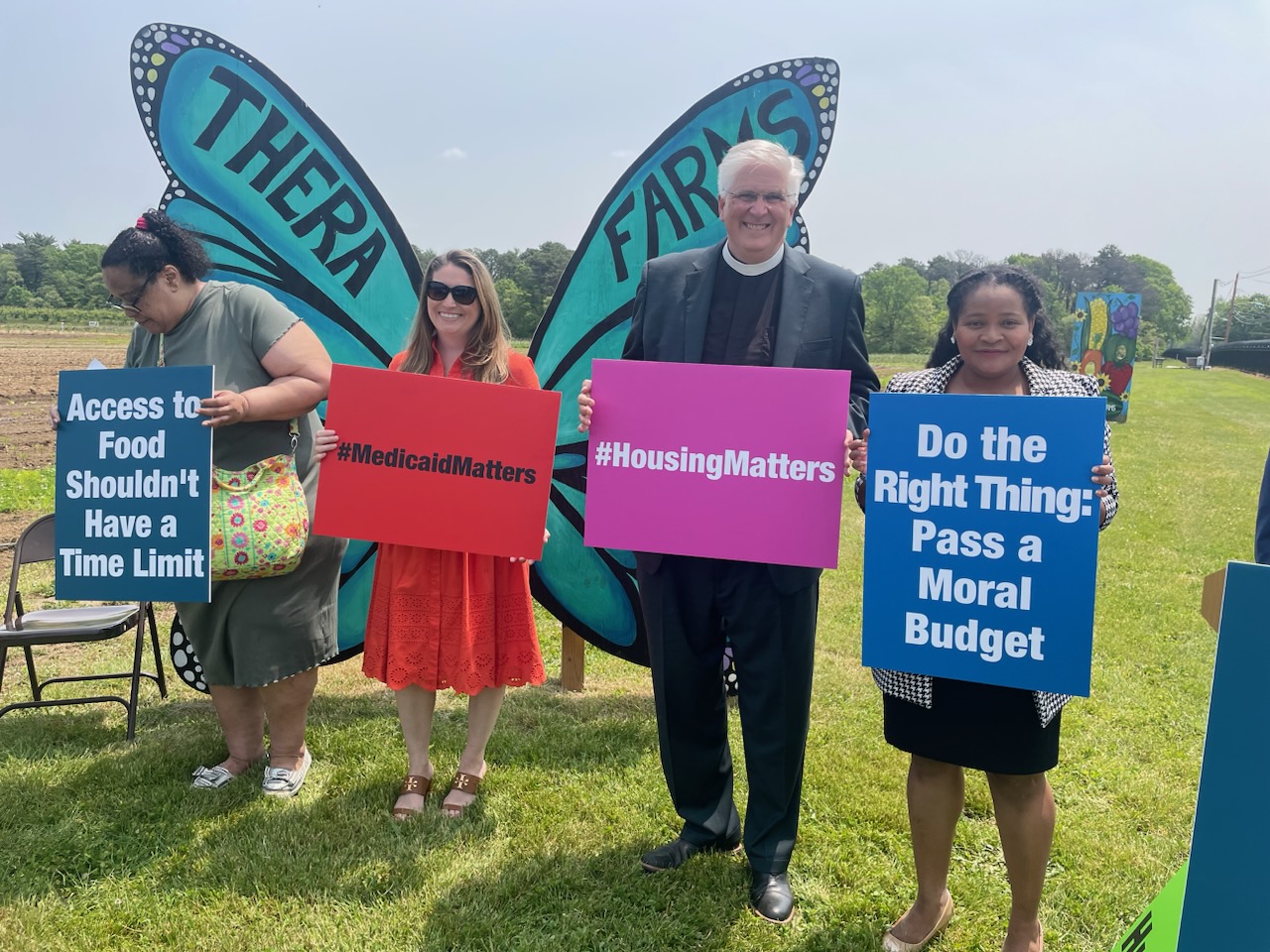
HOUSING
Housing is a human right. Everyone should have access to safe, affordable housing.
Our Position
Catholic Social Justice proclaims the dignity of all people and the right to shelter. Inspired by this principle, we demand affordable housing for all in our nation. NETWORK agrees with Pope Francis, who said during his 2015 visit to the United States, “We can find no social or moral justification, no justification whatsoever, for lack of housing.”1
The largest problem renters and potential homeowners face today is a lack of affordable housing. In the United States, 11.1 million households are severely cost burdened, spending more than half their income on rental housing. Stagnant wages and rising market rents make this problem worse.2
An additional problem is the decreasing amount public housing stock and the poor condition of remaining units. Since the 1990s, the U.S. has destroyed almost a quarter-million public housing units, replacing only a fraction of them with new units.3 Meanwhile, rent prices for new privately developed housing are unattainable for low income families. By failing to provide housing to all members of our society, we harm family development and prevent millions from feeling the peace and joys of this security.
NETWORK Advocates for Federal Policies That:
Recognize stable housing as a critical factor in healthy family life.
Access to decent, affordable housing helps create the stable atmosphere families, and particularly children, need to thrive. However, far too many families with children live in unstable housing because of rising housing costs. This leads to poor health outcomes for children and families. NETWORK supports a housing first model, which recognizes housing as the first step to providing low income individuals and families safety and stability in all areas of life. As Pope Francis declared, “The home is a crucial place in life, where life grows and can be fulfilled, because it is a place in which every person learns to receive love and to give love.”4
Promote affordable housing and create pathways to homeownership.
The federal government must work on solutions to homelessness and housing insecurity with the private sector. Congress must expand vouchers and increase funding for Section 8 rental assistance (including tenant-based assistance and project-based rental assistance), as well as invest in public housing repairs and rehabilitation (which need more than $26 million in major capital repairs). Additionally, federal lawmakers should pass legislation to provide a renter’s tax credit and expand the Low-Income Housing Tax Credit program. However, ending homelessness and bolstering rental assistance programs is not enough. Congress must create a sustainable pathway to homeownership for communities of color, which still face racial discrimination in housing and lending practices. Furthermore, for families to afford housing, it is vital to raise the minimum wage and safeguard the Brooke Amendment, which keeps individuals and families from spending more than 30% of their disposable income on housing.
Drive community and economic development in rural communities.
Rural communities face unique problems due to low incomes and low standards of living. Economic downturns exacerbate this problem and increase poverty rates. Rural communities have a disproportionate share of the nation’s substandard housing and pay more of their income for housing than their urban counterparts.
Homeownership is the principal form of housing in rural America yet access to mortgage credit is limited, especially for Black households. Furthermore, mobile home are the preferred home choice likely because single-family home development costs are often disproportionately higher. Another challenge for rural households is clean water infrastructure. Hundreds of rural communities nationwide do not have access to clean residential drinking water and safe waste disposal systems.
As the U.S. economy shifts to meet global demands for food, fuel, and energy efficiency, there must be a concentrated focus on building sustainable, vibrant rural communities using public and private investments. The federal government must increase investment in Department of Agriculture housing grant and loan programs to ensure every rural household has the resources to buy, build, repair, or rent affordably.















